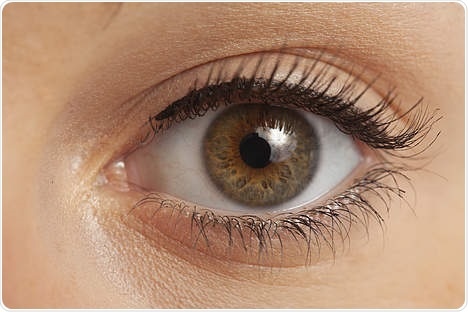Nov 22 2018
"Exactly one year ago, we spoke about the fact that, in future, it will be possible to diagnose diabetes from the eye using automatic digital retinal screening, without the assistance of an ophthalmologist – 12 months on, MedUni Vienna is right in the middle of this digital revolution." These were the words used by Ursula Schmidt-Erfurth, Head of MedUni Vienna's Department of Ophthalmology and Optometrics to open today's press conference about the ART-2018 Specialist Meeting on new developments in retinal therapy, which is to take place on 1 December. One of the latest developments is automatic diabetes screening, which was recently implemented at MedUni Vienna.

Patients flock to the Department to undergo this retinal examination to detect any diabetic changes. It takes just a few minutes and is completely non-invasive"
Ursula Schmidt-Erfurth, Head of MedUni Vienna's Department of Ophthalmology and Optometrics
Essentially this technique can detect all stages of diabetic retinal disease – high-resolution digital retinal images with two million pixels are taken and analyzed within seconds – but Big Data offers even more potential: nowadays it is already possible to diagnose an additional 50 other diseases in this way. Diabetes is just the start. And MedUni Vienna is among the global leaders in this digital revolution.
The Division of Cardiology led by Christian Hengstenberg within the Department of Medicine II is working on how digital retinal analysis can also be used in future for the early diagnosis of cardiovascular diseases.
"This AI medicine is 'super human'," emphasizes Schmidt-Erfurth. "The algorithms are quicker and more accurate. They can analyze things that an expert cannot detect with the naked eye." And yet the commitment to Big Data and Artificial Intelligence is not a plea for medicine without doctors, which some experts predict for the not-to-distant future. "What we want are ‘super doctors’, who are able to use the high-tech findings to make the correct, individualized therapeutic decision for their patients, in the spirit of precision medicine, rather than leaving patients on their own."
However, it is not only in the diagnosis of diseases that Artificial Intelligence and Big Data, plus virtual reality, provide better results. "We are already performing digitized operations with support from Artificial Intelligence. This involves projecting a virtual and precise image of the area of the eye being operated on onto a huge screen – and the surgeon then performs the operation with a perfect view "on screen" as it were, while actually operating on the patient with a scalpel."
Via Artificial Intelligence to personalized and precision treatment
Deep Learning is a new AI technique that produced the first breakthrough in automatic image recognition in 2012. Since 2013, the Medical University of Vienna has been developing AI methods to extract different retinal structures from a three-dimensional image within a matter of minutes. Other AI techniques analyze the changes in these structures over time. By knowing the disease courses of thousands of patients, our AI methods can predict the individual course for each new patient. In the future, such AI applications will serve as decision-support systems to help ophthalmologists plan a personalized treatment for each patient"
Amir Sadeghipour from MedUni Vienna's Department of Ophthalmology and Optometrics
Martin Hülsmann, cardiologist at MedUni Vienna/Vienna General Hospital has been working on clinical studies with retinal experts for many years. He is interested in how the algorithms can be used to provide an accurate assessment of cardiovascular status without the need for invasive procedures, based solely on vascular changes in the retina:
It is possible to identify hypertension, diabetes and even the future risk of suffering a heart attack or stroke on an individual and accurate basis. This technology therefore offers a great contribution to the diagnosis of cardiovascular diseases, long before any negative events occur. This is the level of safety we want for thousands of patients, even in routine daily clinical practice. It allows personalized precision medicine that is quick, cost-effective and conservative and, at the same time, guarantees the highest quality."
ART (Advanced Retinal Therapy) Specialist Meeting
ART Vienna 2018, Saturday 1 December, Van Swieten Hall at the Medical University of Vienna, Van Swieten-Gasse 1a, 1090 Vienna. For information: www.artvienna.eu. The Advanced Retinal Therapy (ART) Meeting will focus on innovations and new developments in the treatment of retinal diseases. Worldwide, around 190 million people suffer from age-related macular degeneration (AMD) and 170 million have a diabetic retinal disease: these are estimated figures and are on the rise.
Source: https://www.meduniwien.ac.at/web/en/about-us/news/detailsite/2018/news-november-2018/digital-revolution-in-ophthalmology-artificial-intelligence-and-big-data-make-for-even-better-diagnosis-and-treatment/